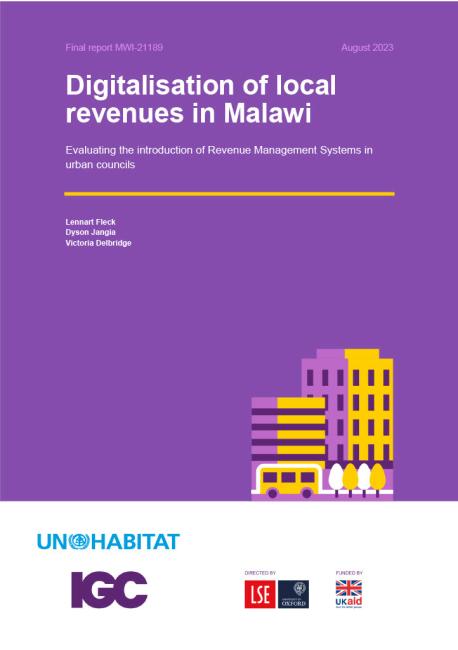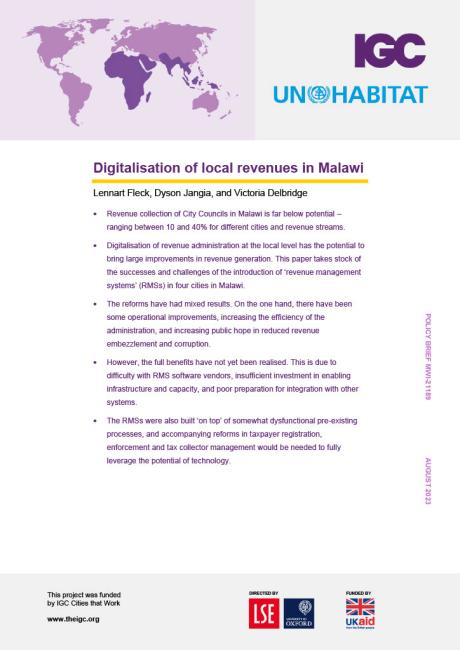Digitalisation of local revenues in Malawi’s cities
This project seeks to get a better understanding of local revenues and what role the use of digital technologies has or can play in improving local revenue mobilisation in urban councils.
Malawi is still at the beginning of its urbanisation trajectory. As growth takes place and urbanisation increases, critical investments in infrastructure and service delivery will be required to ensure urban centres become engines of prosperity rather than sites of overcrowding and congestion. These investments require revenues, and recent reforms to improve local revenue collection have included the use of digital technologies to aid accountability, traceability, and efficiency.
Digitalisation of tax collection has gained popularity as a way to reduce the cost of compliance for taxpayers (enhancing voluntary compliance), as well as decrease the costs of administrating local revenues. It also increases transparency and efficiency within administrations. Digitisation and the use of technology can play a role across the tax spectrum – from identification of the revenue base, billing, facilitating payments and ensuring compliance.
This study seeks to get a better understanding of local revenues in the four cities of Malawi – Lilongwe, Blantyre, Mzuzu and Zomba – and what role the use of digital technologies has or can play in improving local revenue mobilisation from identification to billing and collection. It will also look at the challenges/bottlenecks incurred so far and provide initial policy recommendations to the various levels of government in Malawi on how they might attempt to enhance their local revenue systems. The goal is to use this as a scoping exercise to identify gaps where further, more rigorous, research should be done to test certain policy levers.





